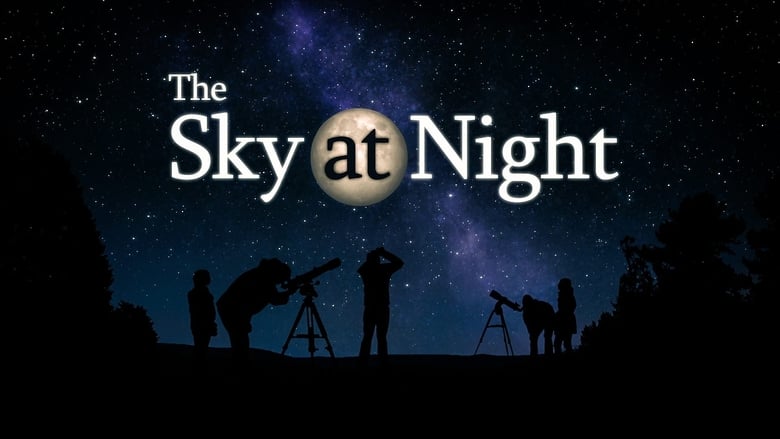
First Aired: April 24th, 1957
Status: Continuing
Genre: News, Documentary
Network: BBC Four
Summary: Your monthly journey through the fascinating world of space and astronomy with the latest thinking on what's out there in space and what you can see in the night sky.
Next Episode:
New episode date is not available for now
Episode Statistics:
# of Episodes: 679
# of Episodes I watched: 0
# of Episodes I haven't watched: 679
Last Episode I watched: -
Episode Summaries
Select Season:
My Season Progress:
0 %
Season 2013
Episode 1: Reaching for the Stars
Air Date: January 7th, 2013
Summary: For more than half a century Sir Patrick Moore encouraged people to look up at the wonders of the night skies. Fittingly in this programme, recorded just before his death, he and his team offer advice to those who are discovering astronomy for the very first time. How should they set up their new telescopes and what should they seek out in the winter skies as they begin to share Sir Patrick's lifelong passion for the stars?
Episode 3: Moore Winter Marathon Results
Air Date: March 3rd, 2013
Summary: There are amazing astronomical objects to see in the winter night sky, and Sir Patrick Moore chose a few of them for his last Moore Winter Marathon. To find out how everyone got on, Chris Lintott and Lucie Green travel to the Kielder observatory in Northumberland to enjoy some of the darkest skies in Britain. Jon Culshaw joins them to take part in Patrick's final challenge, and the rest of the team set up their telescopes to try to catch an asteroid which is about to whizz past the Earth, closer than any before.
Episode 4: They Fall to Earth
Air Date: April 7th, 2013
Summary: Meteorites regularly hit Earth, although most go undetected. Occasionally a big meteorite collides with Earth and when it does, it can cause devastation. Lucie Green and Chris Lintott visit the Natural History Museum to look at its meteorite collection and discuss the recent Russian impact. Jon Culshaw goes on a meteorite hunt, while Pete Lawrence and Paul Abel give their beginners' guide on how to look at Saturn.
Episode 5: Stunning Saturn
Air Date: May 6th, 2013
Summary: Saturn is in our evening skies, and in any telescope looks a stunner. Lucie Green and Chris Lintott investigate the storm that is still raging in the planet's atmosphere, with the latest news from Saturn's amazing moons Titan and Enceladus.
Pete Lawrence and Paul Abel illustrate Saturn's 'opposition effect' and look at some globular clusters, whilst Chris North gets a preview of the new eye-in-the-sky camera, soon to be fitted onto the International Space Station, which will image Earth in incredible detail.
Episode 6: Lives of the Stars
Air Date: June 6th, 2013
Summary: Stars are full of variety - they can be big or little, bright or dim. Our sun is right in the middle - Mr Average - but eventually it will grow old and become a red giant. Lucie Green and Chris Lintott discuss the lives of stars and what happens to them when they die.
Episode 7: Solstice
Air Date: July 8th, 2013
Summary: Every year thousands flock to Stonehenge to celebrate the summer solstice. Seeing the rise of the summer sun at Stonehenge is one of the most obvious connections between ancient man and the celestial calendar, but there is still fierce debate about possible links between this ancient site and the moon and stars. The team join in the solstice revelry and also launch the Moore Moon Marathon, with some easy things to look at on the moon over summer.
Episode 8: Exploring Mars
Air Date: August 7th, 2013
Summary: It's a golden era of exploration on Mars, with Nasa's space rover Curiosity finding out new and exciting things about the planet and which might offer the best chance of life elsewhere in our solar system. The spacecraft Mars Express is also celebrating a decade at the red planet and Chris Lintott and Lucie Green pick out some of the highlights, including the 'face of Mars'. Meanwhile Jon Culshaw explores the Moore Moon Marathon with astronomers in Chipping Norton.
Episode 9: Fatal Attraction
Air Date: September 2nd, 2013
Summary: Black holes are the beating heart of galaxies. It seems that they are pivotal in their evolution, but they also have a destructive side. A dust cloud more massive than the size of the Earth is on a doomed course, as it careers towards the black hole at the centre of our galaxy. Chris Lintott talks to the Astronomer Royal about this cataclysmic encounter.
Episode 10: Space Surgery Special
Air Date: October 6th, 2013
Summary: The team go camping at the Brecon Beacons star party and answer problems and queries about what to see in the night sky and how to use a telescope. Viewers have been sending in astronomy questions in the hundreds since the Space Surgery was launched six months ago.
Episode 11: Moore Moon Marathon
Air Date: November 3rd, 2013
Summary: The moon is a most familiar sight in our sky - it is the astronomer's friend and was Sir Patrick Moore's favourite object - yet fundamentally we still do not know how it was formed and why its far side looks so different.
The team join astronomers on Blackheath to watch a lunar eclipse; find out how everyone got in the Moore Moon Marathon, the list of fascinating features you can see on the moon; and discuss the new missions that will explore this reassuringly familiar yet still most mysterious of cosmic satellites
Episode 12: Comet Chasing
Air Date: December 1st, 2013
Summary: Astronomers always get excited about comets and in December they are looking forward to something rather special. The snappily-named Comet C/2012 S1 ISON has travelled from the very edges of our solar system on a one way ticket around the sun. As it heats up there is intense speculation about whether it will develop a beautiful tail or just break apart. On the Canary island of La Palma the team use both the Liverpool and Issac Newton telescopes to go comet chasing.
Information about series and episodes are provided by TMDB API. If you think that episode information is wrong or missing, please click here to request an update. After your request, update process can take up to 30 minutes.

